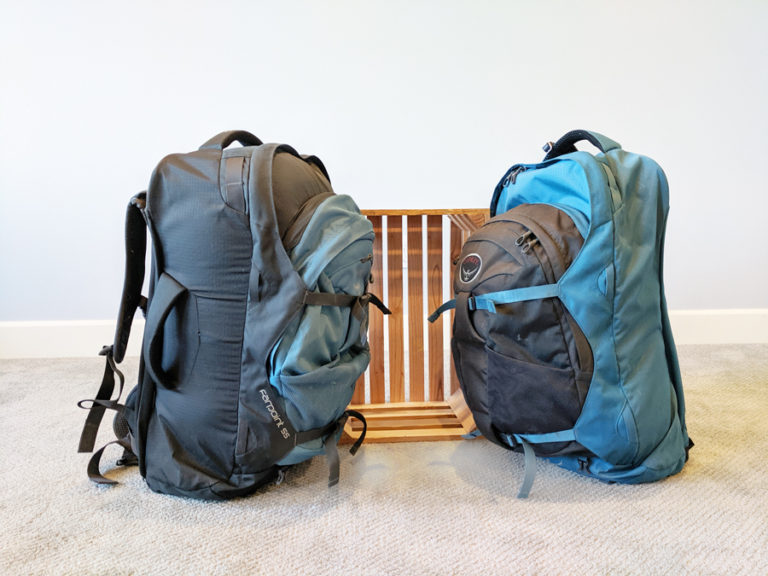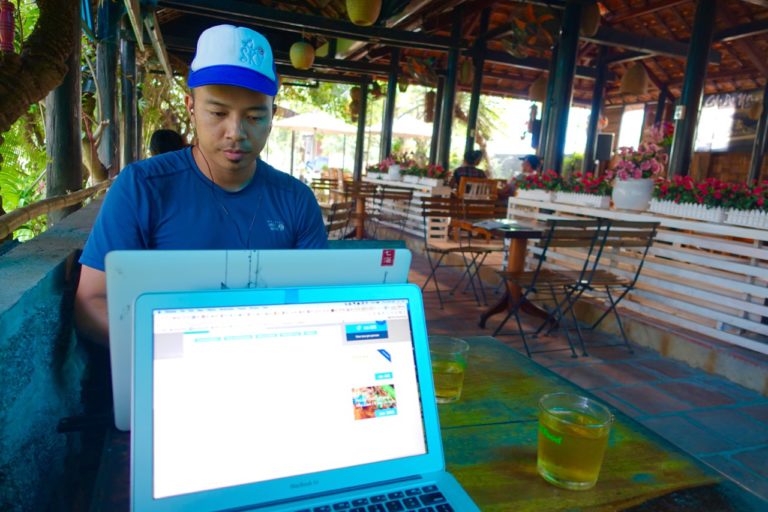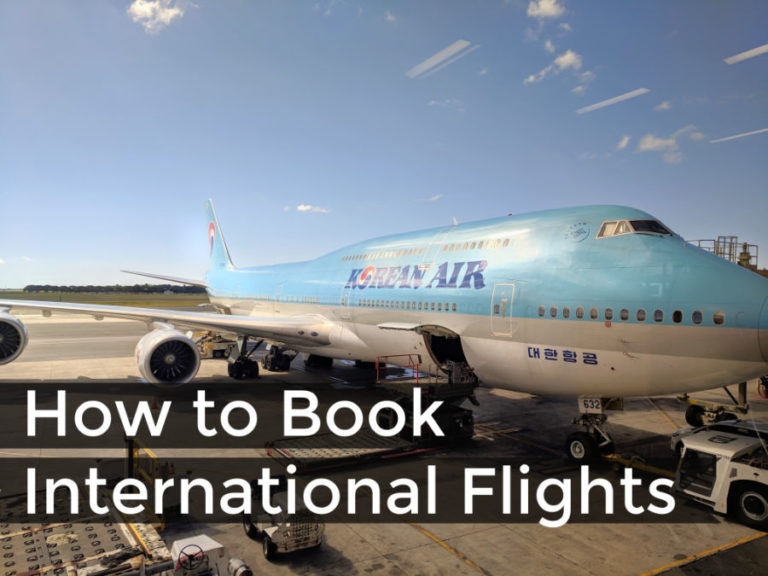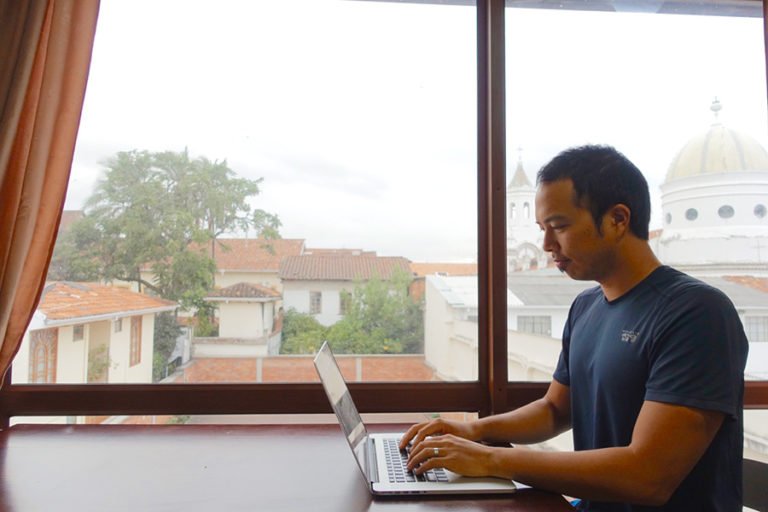Intentional Traveler Interview: Lianne Bronzo
We’re excited to introduce you to Lianne Bronzo, our featured Intentional Traveler this week. She has a lot of great experiences to share from living abroad as a teacher in Korea to couchsurfing in off-the-beaten-path places. Here’s what we learned from Lianne in our latest interview.
Lianne: Intentional Traveler Interview
Please introduce yourself!
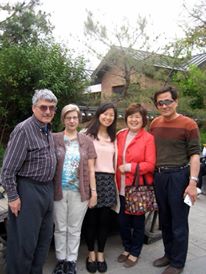
Hi, I’m Lianne, a Korean-American adoptee who only became cognizant of my Korean side in my early 20s. After graduating university and quitting five jobs, I traveled to Asia for the first time to discover my motherland. Perspectives and values changed as my mind opened to the world of opportunities. I soon returned back to live in Korea to teach impossibly cute elementary school students, travel in Korea and Asia, and foster the relationship with my birth family.
During my time in Korea, I have been actively involved in Gwangju and started various community-building projects. After three years, my boyfriend, Adam, will travel slowly around Asia and Australia while volunteering and working with meaning.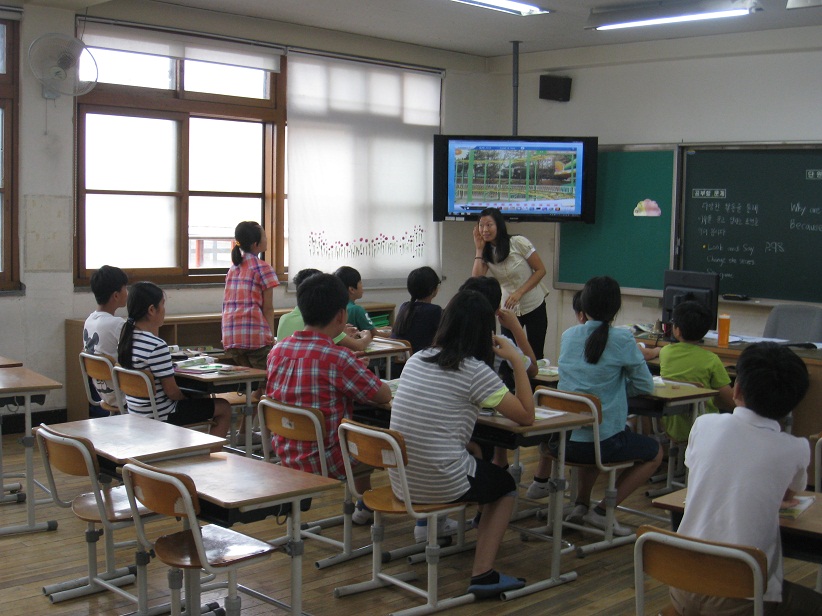
Teaching in Korea
What over-arching goals or values drive your life choices?
I like to connect with individuals and learn about how people live their daily lives. It is more fascinating for me to go to a local grocery store in a new country rather than the overcrowded tourist attractions.
My interests are varied and have changed over the years, but overall, I have always been one to help people and organize community events. Being active in the local community is important to me. If there is something that I want but it doesn’t exist, just create it.
I recently became interested in the gifting economy and the minimalism movement, so I started Gwangju Freecycle in my town in Korea. Expats come and go so often, buying new things and ditching them when they move on. It is absolutely wasteful. With Freecycle, people can share within the community without an expectation of something in return. Instead of money, gratitude and smiles are exchanged. This organization has brought the community closer and gave thousands of items new homes instead of going into the dumpster.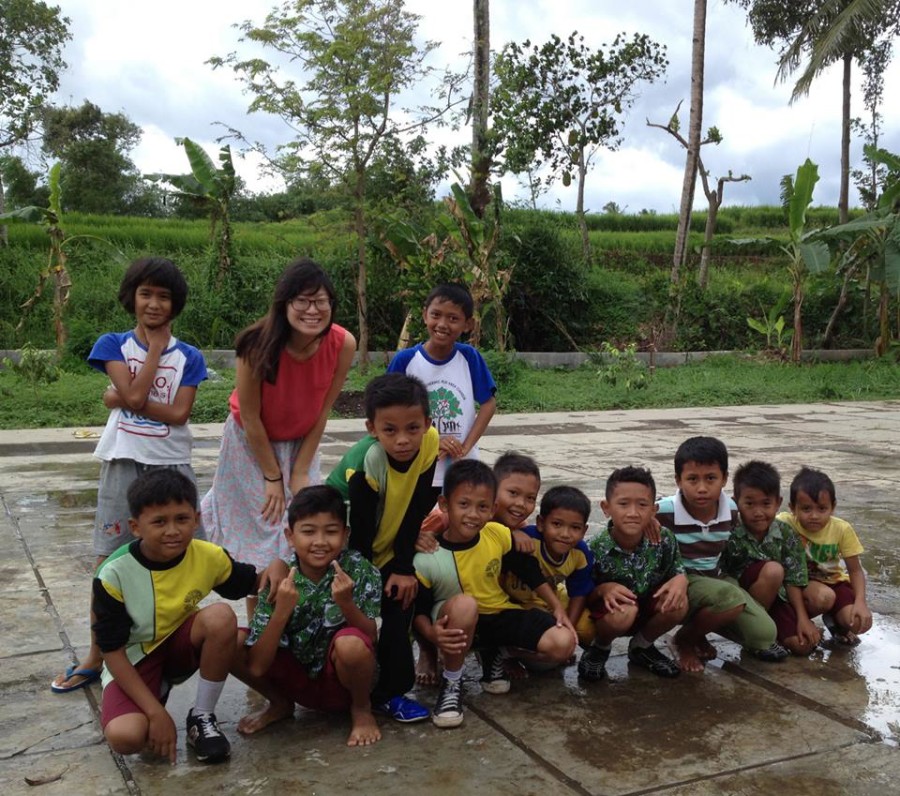
Indonesia
What style(s) of travel do you partake in?
I like to travel slowly. Stay put in one place for longer rather than jumping around every two days. I have lived in Korea for three years, and I am still soaking into the culture and learning new things every day. I will never fully understand everything in this culture, so I will remember that when traveling in places for a week or so, where I will barely scratch the tip of the surface.
As mentioned earlier, I like connecting with locals. I am an avid CouchSurfing host and surfer with over 50 experiences. Not only did I make great friends, I learned more about different cultures than I would have if I stayed in a hotel. CouchSurfers tell me the local events, introduce us to their friends, bring us to the best restaurants… all of the things that are not in the guidebooks. When I travel, I try to see the city from a local viewpoint and not so much a tourist’s. Yes, I am a tourist and I do want to go to some main attractions, but it is just as interesting and important to me to go where the locals do.
Tell us about one of your favorite trips
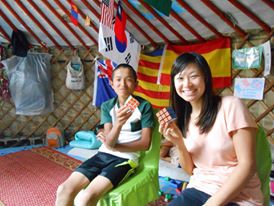 I CouchSurfed with a Mongolian family of six in their ger. I didn’t leave the ger district during those few days – I was part of their family. Some duties I did include drying cow dung, fetching and milking the cows, learning how to cook yogurt and bread, building a bed for the kids out of old doors. These are experiences I never thought I would have the opportunity to try. Additionally, I brought my culture to this family, people who don’t have the chance to travel at the moment. I brought a Korean flag and snacks, taught them some basic Korean language, taekwondo, how to solve a Rubik’s cube, basic gymnastics, and American games I enjoyed as a kid like hopscotch.
I CouchSurfed with a Mongolian family of six in their ger. I didn’t leave the ger district during those few days – I was part of their family. Some duties I did include drying cow dung, fetching and milking the cows, learning how to cook yogurt and bread, building a bed for the kids out of old doors. These are experiences I never thought I would have the opportunity to try. Additionally, I brought my culture to this family, people who don’t have the chance to travel at the moment. I brought a Korean flag and snacks, taught them some basic Korean language, taekwondo, how to solve a Rubik’s cube, basic gymnastics, and American games I enjoyed as a kid like hopscotch.
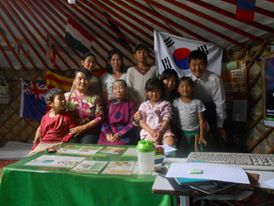 The whole experience was incredibly meaningful. I hope everyone can get a chance to stay with a family in another culture. The family dynamics is so different from where I grew up, where it was my job to be a kid, study, go to gymnastics practice, and play. These kids had specific duties to participate in family life, even the youngest at 5 years old.
The whole experience was incredibly meaningful. I hope everyone can get a chance to stay with a family in another culture. The family dynamics is so different from where I grew up, where it was my job to be a kid, study, go to gymnastics practice, and play. These kids had specific duties to participate in family life, even the youngest at 5 years old.
What are the pros and cons of teaching in Korea?
Pros: Korea is a developed country – conveniences are plentiful and it is extremely safe – so it is an easy transition for life in Asia. The financial benefits are numerous – on top of a decent salary, you get flights covered, settlement allowance, pension (if you’re from participating countries like the US and Canada), severance, housing allowance, and renewal bonus. Since the cost of living is quite low in Korea, most people are able to save money. With public schools, you get 18 vacation days per year (5 extra with renewal bonus), but I was able to take more so it seemed like I was traveling abroad for two months out of the year.
In terms of the actual job – it is pretty stress-free. You will rarely need to take work home. You get out what you put in – you can do the minimum amount of work, follow the textbook, and subsequently have uninspiring classes. OR you can design innovative lessons and activities that align with your personal interests (I recently did a lesson on environment and recycling) that brings new energy into the classroom. The latter is rewarding for the teachers while being educational and fun for the students.
Cons: I worked in a public school and I am still confident that this was the best choice for me over a private academy. However, it can get difficult and isolating being the only foreigner in school. You are expected to attend teacher outings and participate in sports. While these are quite fun, the foreigner is often ignored while everyone else speaks Korean to each other. So I’d highly encourage people to learn as much Korean as possible and use these moments as an opportunity to practice the language.
Some people complain that coteaching is stressful, but again, this is highly dependent on your situation. Some Korean teachers like to lead the classroom, leaving the native teacher feeling bored and useless. Others prefer to do nothing (sometimes, not even show up for class), which could be great or terrible depending on the native teacher and classroom environment. The key is communication. Korean people tend to beat around the bush and reply “maybe” to every question, so you have to be assertive and clearly communicate your concerns. This really was a struggle for me at first because I wanted to be culturally sensitive, but sometimes it was just a matter of me being taken advantage of for being too nice. Sit down and talk with your coteacher and determine what is the best way to lead the classroom to maximally benefit the students’ education.
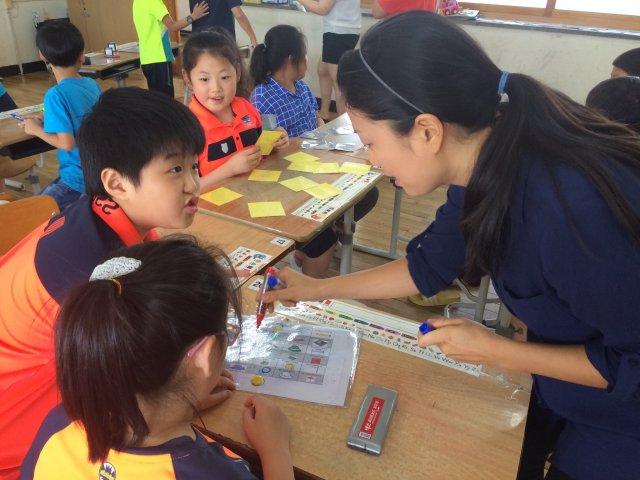
If you could give one piece advice to others interested in your lifestyle, what would it be?
Be flexible. This trait is important for all kinds of travel, but especially for life in Korea. The foreign teachers are the last to learn about events like class cancellations, extra classes, teacher dinners, camp lesson plan due dates, etc. Don’t be too angry or take it personally if this happens to you, but also make sure to put efforts into politely asking your coteachers to inform you about these things in advance.

